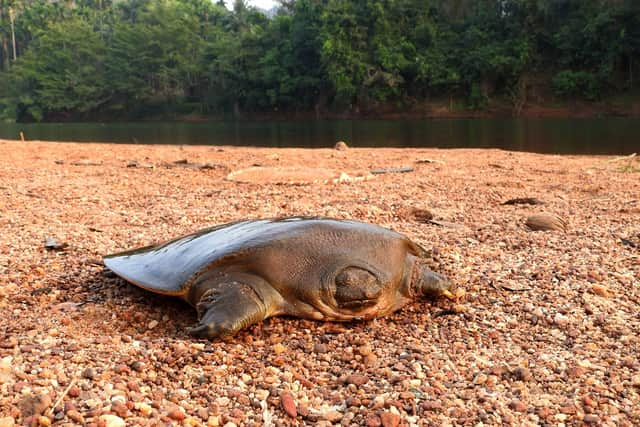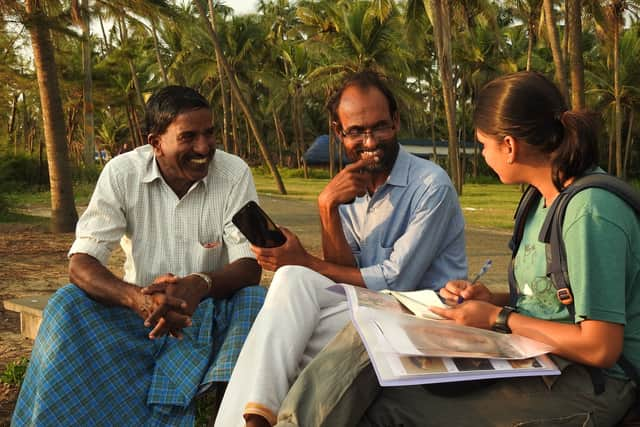"Secretive" rare turtle found by Portsmouth conservationists in India as habitat destruction hurts species
and live on Freeview channel 276
A team of conservationists led by the University of Portsmouth used knowledge from local communities to uncover the nesting site of the “secretive” Cantor’s giant softshell turtle (Pelochelys cantorii) which is native to the rivers of south and southeast Asia. The freshwater turtle is classified as critically endangered (CR) on the International Union for Conservation of Nature’s (IUCN) red list of threatened species with its numbers still decreasing.
But now the team has tracked the elusive turtle to the banks of the Chandragiri River in Kerala in southern India. A University of Portsmouth spokesman said: “Known for its rarity and secretive nature, this species has long been a subject of fascination and concern among conservationists. “Habitat destruction has made it disappear from much of its environment. They are also heavily harvested by locals for meat and are often killed by fishermen when caught in fishing gear.




Advertisement
Hide AdAdvertisement
Hide Ad“By talking to local villagers, the group were able to systematically document sightings of the turtle and engaged communities in conservation efforts. This work led to the first documentation of a female nesting, and the rescue of eggs from flooded nests. The hatchlings were later released into the river.”
Dr Francoise Cabada-Blanco, of the university’s School of Biological Sciences and author of the study published in the journal Oryx, said: “For years, the Cantor turtle’s existence has barely been a murmur against the backdrop of India’s bustling biodiversity, with sightings so scarce that the turtle’s very presence seemed like a ghost from the past. Following several unsuccessful attempts at tracking one down using conventional ecological survey methods, we took a different approach by tapping into local knowledge.
“The team were able to engage the community really effectively, so much so that they shared tales of historical sightings, provided leads on current occurrences, and even aided in the live release of individuals accidentally caught as by-catch.” The team, led by Ayushi Jain from the Zoological Society of London’s Edge of Existence Programme, is now working on setting up a community hatchery and nursery.
She said: “The community’s willingness to engage formed the backbone of our project, allowing us to record not just fleeting glimpses of the turtles but evidence of a reproductive population - a discovery that rewrites the narrative of a species thought to be vanishing from India’s waters.” The research was carried out in collaboration with the Zoological Society of London, University of Miami, Museum of Zoology at the Senckenberg Society for Nature Research in Germany, Florida Museum of Natural History in the USA, and Wildlife Institute of India.
Comment Guidelines
National World encourages reader discussion on our stories. User feedback, insights and back-and-forth exchanges add a rich layer of context to reporting. Please review our Community Guidelines before commenting.